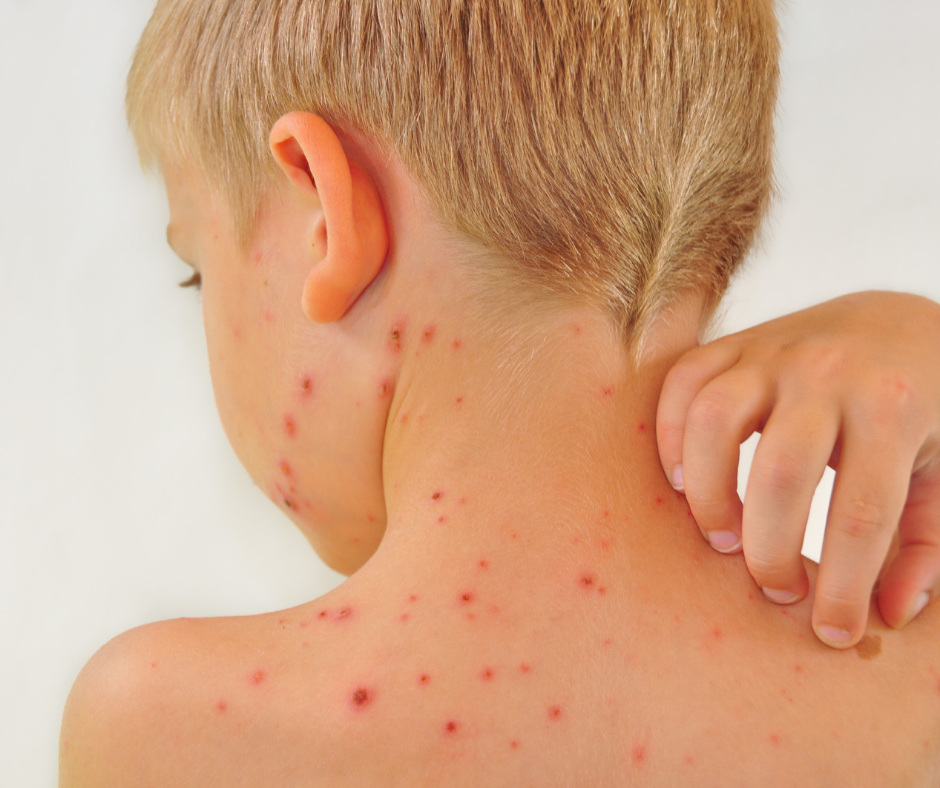UK Health Security Agency (UKHSA) South West is reminding parents and carers of the symptoms of both scarlet fever and chickenpox following a rise in cases across the country.
Levels for both infections are in line with what we expect to see at this time of year, but there has been an increase compared to 2021 when measures during the pandemic such as social distancing, enhanced hygiene and school and nursery closures kept cases below average.
Scarlet fever is caused by a bacteria called group A streptococcus and can complicate other skin infections such as chickenpox, when both infections are circulating, as is currently the case.
A total of 3,488 notifications of scarlet fever were reported between September 2021 and March 2022 in England compared to an average of 8,605 for this same period in the previous 5 years.
Notifications last season and at the start of this season are thought to be below average due to a variety of measures in place during the pandemic.
Scarlet fever is usually a mild illness, but it is highly infectious, so UKHSA is advising parents to be on the lookout for symptoms, which include a sore throat, headache and fever with a characteristic fine, pinkish or red body rash with a sandpapery feel.
If signs of scarlet fever are suspected, it is important to contact your local GP or NHS 111. Early treatment of scarlet fever with antibiotics is important as it helps reduce the risk of complications such as pneumonia and the spread of the infection to others.
Children or adults diagnosed with scarlet fever are advised to stay at home until at least 24 hours after the start of antibiotic treatment to avoid spreading the infection to others.
Dominic Mellon, Deputy Director of Health Protection at UKHSA South West said:
“It’s not uncommon to see a rise in cases of scarlet fever at this time of year and we are continuing to monitor rates of infection. Scarlet fever is highly contagious but not usually serious and is easily treatable with antibiotics. It is important to take antibiotics, if prescribed by a GP, to minimise the risk of complications and spread to others.
“We are reminding parents and carers to be aware of the symptoms of scarlet fever and to call their GP or NHS 111 for further advice or assessment if they think their child might have it. Symptoms to look out for include a fever, sore throat and a pinkish-red rash with sandpapery feel.
“To limit the spread of scarlet fever it is important to practice good hygiene by washing hands with warm water and soap, not sharing drinking glasses or utensils, and covering the nose and mouth when coughing or sneezing.”
Chickenpox (varicella) is a highly infectious infection caused by the varicella zoster virus, an presents with a characteristic rash, with vesicles on the face, spreading down over the body to the arms and legs.
Although generally mild in otherwise healthy children, it can be more severe in pregnant women and immunosuppressed individuals. Children with chickenpox should remain at home until they are better and the rash has gone.
Many common infections declined during lockdown and are now circulating at higher levels, and this includes chickenpox, which is also common in pre-school and nursery settings.
For further information on scarlet fever visit: www.nhs.uk/conditions/scarlet-fever/
For further information on chickenpox visit Z.nhs.uk/conditions/chickenpox/

Whilst you’re here:
Did you know we rely on local businesses and the community to help keep us online? Our community website is an alternative to the mainstream media – For the people, by the people. You can help us stay online by becoming a supporter on Facebook. In return, you will have access to exclusive content. Click here for information.
You can join us on our social media pages, follow us on Facebook or Twitter and keep up to date with whats going on in South Devon.
Got a news story, blog or press release that you’d like to share or want to advertise with us? Contact us




























